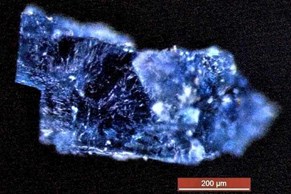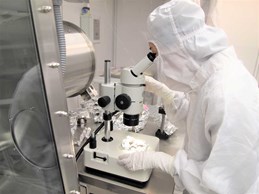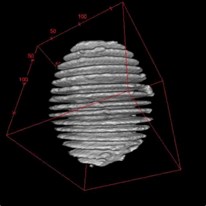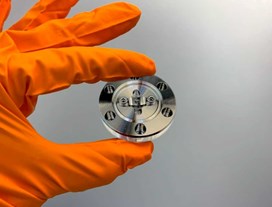Queenie Chan
It is not easy to catch a shooting star, but when we find one, we make the most out of it by studying it in every detail to learn its secrets. Carbon-containing meteorites record the chemistry that preceded the emergence of life, and now we are better able to look for those signs than ever before – thanks to the development in modern technology with enhanced precision and sensitivity.
Although the building blocks of life in meteorites could be vulnerable to extreme conditions, e.g. toasty temperature during a meteorite's fiery entry into the atmosphere, the interiors of meteorites are buffered from those conditions. Trapped liquid water and life’s precursor molecules could have been preserved like “mosquito in amber” and therefore studied in the laboratory.
Queenie Chan is a planetary scientist. Her research focuses on understanding the earliest chemical reactions involving liquid water in the solar system, and how the individual events turned simple life’s building blocks into increasingly complex molecules that ultimately yielded life. Her work typically involves the analysis of the chemical and organic contents of astromaterials including meteorites and asteroidal/cometary samples returned by space missions.
 |
 |
| A water-bearing halite crystal found in the Zag meteorite | Dr. Chan subsampling a meteorite sample under an optical microscope in a Class 10 clean lab at NASA Johnson Space Center |
 |
 |
| A magnetite plaquette (stack of platy magnetite crystals) in the Orgueil meteorite. Magnetite plaquettes are apparently absent from terrestrial environments, but are common in meteorites extensively processed by water on asteroids. | A 50 µm small particle of the asteroid Itokawa collected by the JAXA Hayabusa mission. It is contained in a specially designed sample container allocated for detailed organic characterisation |
References
- Chan, QHS, Zolensky, M, Kebukawa, Y, Fries, M, Ito, M, Steele, A, Rahman, Z, Nakato, A, Kilcoyne, ALD, Suga, H, Takahashi, Y, Takeichi, Y & Mase, K 2018, 'Organic matter in extraterrestrial water-bearing salt crystals', Science Advances, vol. 4, no. 1, eaao3521, pp. 1-10. https://doi.org/10.1126/sciadv.aao3521
- Michalski, J, Onstott, T, Mojzsis, S, Mustard, J, Chan, QHS, Niles, P & Stewart Johnson, S 2017, 'The Martian subsurface as a potential window into the origin of life', Nature Geoscience, vol. 11, pp. 21-26. https://doi.org/10.1038/s41561-017-0015-2
- Kebukawa, Y, Chan, QHS, Tachibana, S, Kobayashi, K & Zolensky, M 2017, 'One-pot synthesis of amino acid precursors with insoluble organic matter in planetesimals with aqueous activity', Science Advances, vol. 3, no. 3, e1602093, pp. 1-7. https://doi.org/10.1126/sciadv.1602093




















